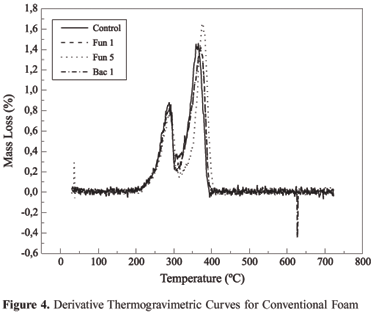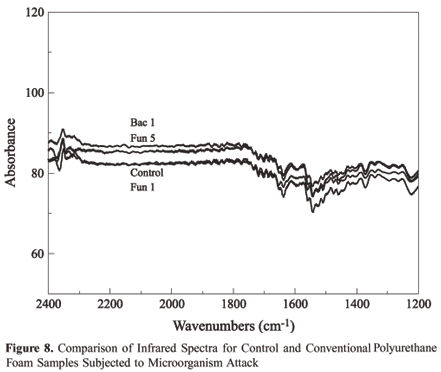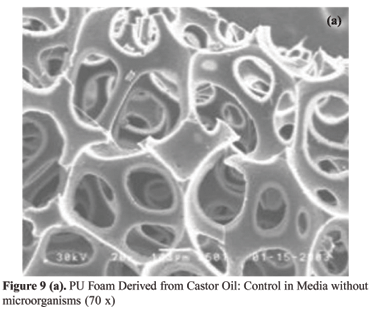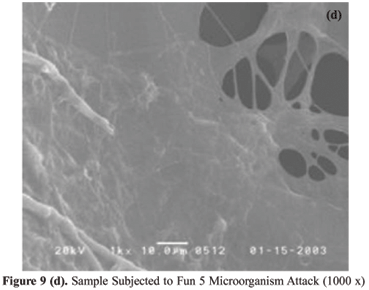The aim of this research is to study the biodegradation of a polyurethane derived from castor oil, which contains polyester segment in its molecular structure, thus becoming susceptible to the microorganisms attack. The biodegradation of polyurethane was tested in contact with microorganisms resulting from microbiological grease degrading agents, in appropriate liquid media, with a duration of 156 days. The study was done by using scanning electron microscopy (SEM), thermogravimetry (TG) and Fourier-transform infrared spectroscopy with accessory for attenuated total reflectance (FTIR-ATR). The results suggest that the degradation of polyurethane derived from castor oil occurs. TG curves are used in order to indicate the biodegradation, showing changes between the thermal behavior of the samples that were inoculated with microorganisms and control. In the FTIR-ATR spectra, there are detectable changes between the spectra of control and attacked specimens; this suggests that degradation occurs, with the decreased intensity of the absorption band at 1042 cm-1, corresponding to the esters links.
Biodegradation; polyurethane; castor oil; thermogravimetry; infrared spectroscopy


















